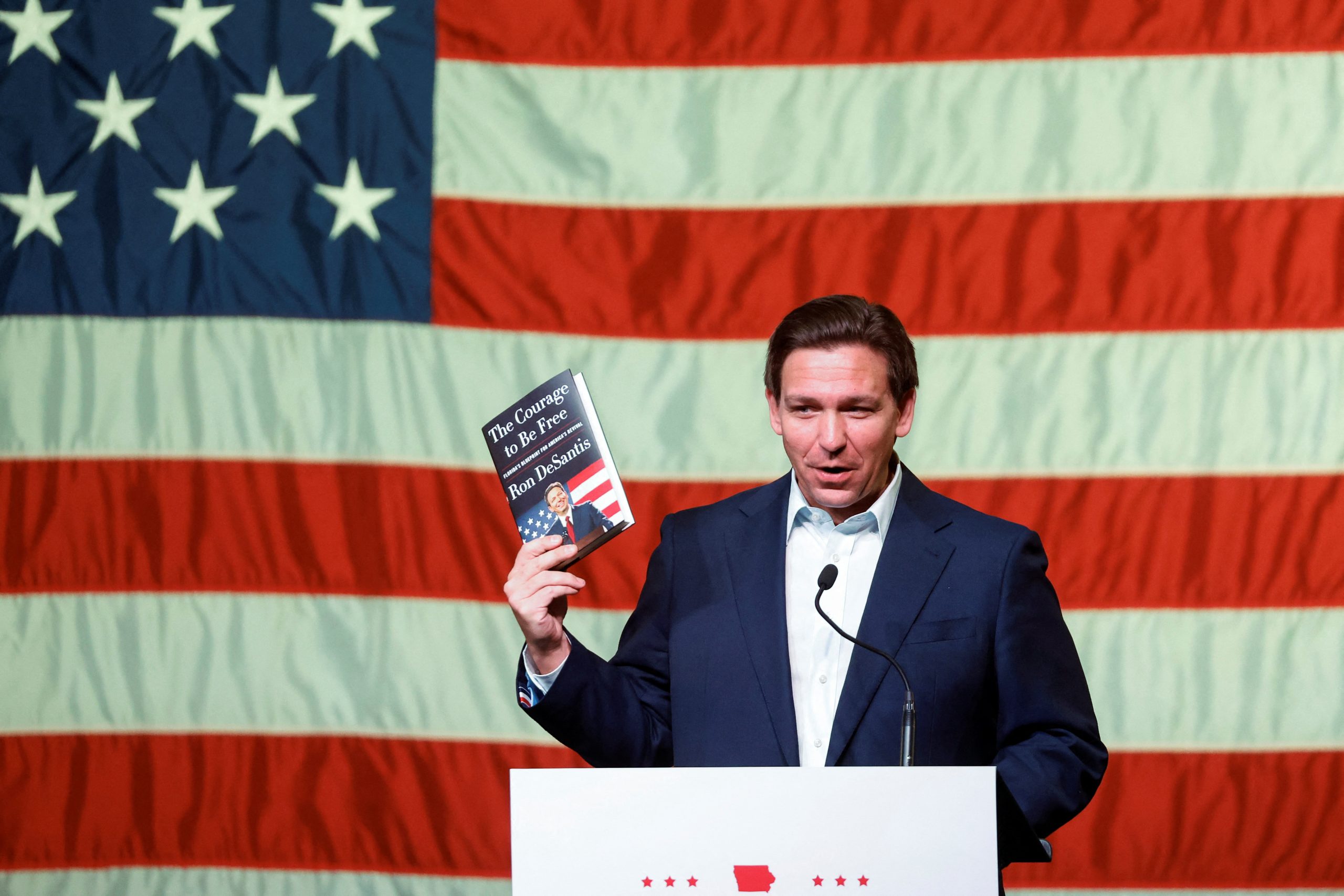
Chris Lange, FISM News
[elfsight_social_share_buttons id=”1″]
Continued funding for Ukraine’s defense against the Russian invasion is shaping up to be a key issue ahead of the 2024 presidential election.
While Democrats have remained steadfast in their support of continued aid for Kyiv, Republicans are increasingly divided over the role Washington should play in the ongoing conflict.
Florida Republican Gov. Ron DeSantis, who has yet to announce an anticipated bid for the White House, told Fox News Host Tucker Carlson that continued funding for Ukraine is not a “vital” interest for the United States.
DeSantis wrote in response to a Fox News survey,
While the U.S. has many vital national interests – securing our borders, addressing the crisis of readiness within our military, achieving energy security and independence, and checking the economic, cultural, and military power of the Chinese Communist Party – becoming further entangled in a territorial dispute between Ukraine and Russia is not one of them.
The questionnaire, which Carlson shared on Twitter Monday, was sent to a group of declared and potential 2024 contenders, including the Florida governor.
Trump similarly responded that the U.S.’s “objective in Ukraine is to help and secure Europe,” but that Europe is “relying on the United States to largely do it for them,” adding: “That is very unfair to us.”
Presidential candidate Nikki Haley, however, split with her former boss and the Florida governor.
“The Russian government is a powerful dictatorship that makes no secret of its hatred of America,” the former South Carolina governor and former U.N. ambassador told Fox News in a statement after missing the questionnaire’s deadline.
“Unlike other anti-American regimes, it is attempting to brutally expand by force into a neighboring pro-American country. It also regularly threatens other American allies,” Haley added.
Sen. Marco Rubio (R-Fla.) disagreed with DeSantis’s assessment of the war as a “territorial dispute.”
Asked by conservative radio talk show host Hugh Hewitt Tuesday to weigh in on his home-state governor’s remarks, Rubio replied: “Well, it’s not a territorial dispute in the sense that any more than it would be a territorial dispute if the United States decided that it wanted to invade Canada or take over the Bahamas.”
The Florida lawmaker said that “geopolitical competition with China” should be the U.S.’s top priority but pointed out that “there are elements of that that are linked to what’s happening with Ukraine and Russia.”
Rubio explained that “the Chinese want Russia to be successful in Ukraine … for two reasons. The first is because they believe that it’s keeping us distracted. And the other is because I think it helps delay the groundwork and set the precedent for what they intend to do in terms of Taiwan and then in any other areas.”
Following the release of the questionnaire results, Sen. Linsey Graham (R-S.C.), an outspoken supporter of U.S. support for Ukraine, tweeted: “If (Russian President Vladimir) Putin loses in Ukraine, then the world resets in all the right ways. If he wins in Ukraine and the west capitulates just like in the past, more conflict is coming.”
While Republican divisions over U.S. funding for the war has been the subject of several media reports in recent months, the fissure was palpable in February when 10 Republicans co-sponsored a resolution introduced by Rep. Matt Gaetz (R-Fla.) calling on the Biden administration to “end its military and financial aid to Ukraine.”
The U.S. has so far appropriated more than $112 billion in defense, economic and humanitarian aid to Ukraine since the February 2022 invasion, according to NPR.
FISM reported in February that an Associated Press-NORC poll signaled waning voter support for continued military aid for Ukraine. Fewer than half of American adults (48%) surveyed said that they supported the U.S. providing weapons to Ukraine, representing a sharp decline from May 2022, when 60% said they supported weapons deliveries. However, Americans remained more equally divided on the subject of overall U.S. spending on Ukraine. Thirty-eight percent of respondents said that they opposed U.S. funding for Ukraine, followed closely by 37% who said that they support it. Twenty-three percent said that they neither support nor oppose government funds supporting Ukraine.
